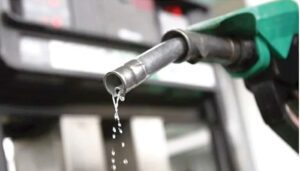Energy Crisis: Power, natural gas prices divide European nations at emergency meeting
The European Union energy ministers clashed at an emergency meeting over how to cushion consumers and companies from soaring power and natural gas prices, with political and legal constraints leaving little room for immediate action.
At an emergency meeting in Luxembourg on Tuesday, the ministers discussed how the EU could complement measures already taken by member states and what could be done in the medium term to prevent future price shocks.
Countries including Poland and Spain called for the EU to come up with new intervention tools, but a group of nine nations including Austria, Denmark, Finland and the Netherlands argued that the hike is temporary and should not lead to quick changes to the bloc’s energy laws and ambitious climate reforms.
“I don’t think we should place too high expectations on EU-level measures because we can’t influence the world prices of coal and gas and oil,” Germany’s Deputy Economy Minister Andreas Feicht told the meeting.
The unprecedented energy crisis has become one of the hottest issues as the 27-nation bloc heads into the winter season, with households facing double-digit increases in electricity bills and some industrial giants curtailing production.
Meanwhile, the European Commission is querying gas producers and suppliers to examine “all allegations of possible anti-competitive conduct” to check whether current price increases are related to antitrust breaches, according to comments from the bloc’s press office.
She added that the EU will decide on the role of gas and nuclear energy in its green rulebook in the near future — an issue that has become more pertinent amid the surge in electricity prices.
Tuesday’s meeting followed a discussion last week about the crisis at a summit with EU leaders, who brushed off calls by some countries for quick fixes to the bloc’s laws and the Green Deal strategy to make the economy sustainable. Most countries have already cut taxes or approved subsidies to help households and companies, and there are few remaining tools that are technically possible and politically palatable.
“I don’t see a lot of margin for maneuver for countries to come up with something concrete and new,” said Maximo Miccinilli, head of energy and climate at FleishmanHillard EU.
“We need a joint European response because we’re talking about the single market for energy,” said Sara Aagesen, Spain’s secretary of state of energy.
“We need a very urgent response to address the situation, without though jeopardizing the process of decarbonization.”
The challenge for national governments and the regulators in Brussels is to come up with a solution that will keep the lights and heat on this winter while preserving support for the bloc’s ambitious climate agenda. The crisis struck at a time when member states are considering a package known as Fit for 55 to implement a stricter 2030 emissions-reduction target.
“For the medium term, a central part of the solution lies with cost-effective energy efficiency measures and the accelerated deployment of renewable energy sources,” the nine countries said in the document.
“We agree with the Commission that it is of utmost importance to swiftly proceed with the treatment of the Fit for 55 package to achieve climate neutrality by 2050.”




